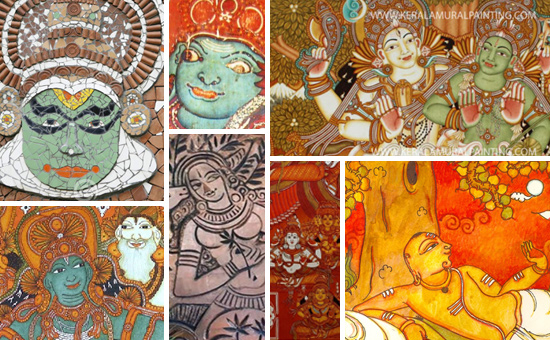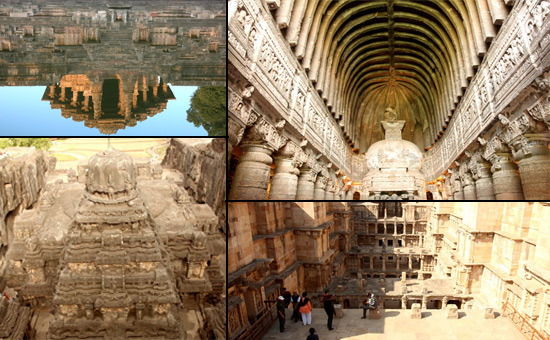- Article provides answers to commonly asked questions e.g.
why lower price for Centre, can we produce on Cost Plus basis, Centre
is not funding Vaccination N can India produce vaccines for its population
now.
On April 27 the Supreme Court (SC) “asked the central government to explain to it the rationale and basis” behind differential pricing of Covid-19 vaccines (C19V). It “also asked the Centre as to how it was going to meet the sudden surge in demand of vaccines from May 1 when vaccination for all above 18 years of age would begin.” Business Standard
Key issues raised by SC were-Basis for differential pricing to centre,
state and private hospitals and how was Centre going to meet demand for 18
plus.
The Centre filed an affidavit on 9/5/ stating that ‘the vaccination drive for those between 18 and 44 was approved after requests from the states. It is pertinent to note that the Centre by nature of its large vaccination program places large orders as opposed to states and or private hospitals and therefore this reality has some reflection in the price negotiated.” Hindustan
Times
BackgroundThe
vaccine is currently being produced by two companies in India, Serum Institute
(SI) and Bharat Biotech (BB). SI have declared a per dose price
to Rs 300/ to state governments and Rs 600/ to private hospitals. Corresponding
figures for BB are Rs 400/ and Rs 1,200/. Cost to Centre is Rs 150 per dose for
limited quantity, post which they have to buy at Rs 300/ per dose.
SI
is a contract manufacturer for AstraZeneca
producing under technology transfer/license. The vaccine is not developed by it
hence it pays
50% royalty to AstraZeneca (The Week).
Thus, costs incurred by SI are raw materials to produce C19V, capital
expenditure to set up plant (depreciation), overheads, cost of clinical-trials
and royalty. It has no control on what price AstraZeneca sells globally.
Conversely,
the BB vaccine is developed
in collaboration with the Indian Council of
Medical Research (ICMR) - National Institute of Virology (NIV). Thus BB has to incur
costs similar to SI except research and development cost replace royalty. The
nature of the arrangement between BB and ICMR-NIV is not in public domain. Cost
to BB could be co-development or royalty based.
It
usually takes years to develop a vaccine. There is no guarantee that the version
of the vaccine developed is successful in curing the sickness. This is a high
risk and capital intensive business. That could be one reason why mainly global
pharma companies undertake it.
To make drugs affordable worldwide Indian pharma companies chose the ‘reverse engineering’ route. The story of CIPLA supplying Africa with an anti-HIV drug is well known. Financial Express
Corresponding
example - An advocate who becomes a Judge gives up a lucrative practice for
status, power and satisfaction. If at the end of one year he/she is unhappy can
become an advocate again. Such liberty is not available to a pharma company.
Once it invests in R&D it does not know results for years. There is little
chance of going back without a huge write off.
It
is possible, though unlikely to be in public domain, that both SI and BB are using
existing capacity to produce C19V. There could be an opportunity cost to that.
It is better to look at the big picture and inadvisable for the public or
courts to get into that detail of how private companies optimise their assets
esp. during a pandemic.
 Kerala Murals awesome.
Kerala Murals awesome.
In order to reduce cost can SI and BB produce on a cost plus
basis?
Defence
Ordinance Factories produce and sell on a cost plus approach, results are there
to see.
Maj
Gen S B Asthana wrote in 2020, “It is an open fact
that OFB has failed in many ways & marked as an inefficient entity that
nation can ill afford the loath of underperforming, hiding their inefficiencies
under the garb of being defence establishments, firewalled with protectionism
to avoid accountability. If the import figures from 1950 to 2017 are analysed, India has imported $119.89 billion worth of arms.” Business World
SI
is a contract manufacturer so cost plus is of little consequence. If government
insists BB works on cost plus it will kill the spirit of innovation across
every industry in India and we shall continue importing technology from the
West.
We
should celebrate that this public-private partnership has indigenously
developed the Covid-19 vaccine.
Do we want
companies like Bharat Biotech or OFs?
Should BB be priced lower because the vaccine is co-developed
with two government organizations i.e. ICMR and NIV?
Does
that mean that these organizations should not be entitled to receiving a
financial reward for their efforts? The revenue earned can be used to pay better-attract
talent and undertake path-breaking research that shall eventually benefit
India. The detailed arrangement between BB and government institutions need not a subject matter of debate.
However, as per a May 11 Mint
report sale of Covaxin will fetch 5% royalty for ICMR
since the intellectual property governing its use was shared with Bharat Biptech. “The only financial support given was in the form of advance payment for jabs. ICMR, however, spent Rs 35 crore and Rs 11 crore, respectively, at the trial sites of Covishield and Covaxin."
Why
are some hesitant in paying Rs 600/1200 per dose? After all a newly born child
is given DPT
(diphtheria, pertussis, tetanus) and polio vaccine etc. that cost significantly
more in private! Anyway most states have announced free Covid19 vaccine for
all.
Indians must learn to pay for
quality services. We need an attitudinal change!
Note that
Shobha
Kamineni told CNBC TV18 on 30/4/ that Apollo would charge an inoculation fee of
Rs 200/ for SI and none for BB vaccine.
Now why differential pricing for vaccines? This is
not rare. At early stage SI and BB probably agreed to a lower price because
none knew how effective the vaccine would be. Low price is initially charged by
many manufacturers to a big customer just like a Mall owner charges an Anchor
tenant low rates with the hope of attracting others. It might be difficult to
relate to such commercial practices unless you have worked in a corporate or
run a business. Centre has also paid SI an advance of Rs 1732.50 crs for 11
crore doses and Rs 787.50 cr to BB for 5 cr doses, for the months April-June. There
is a time value to money! States can emulate.
Such commercial transactions should
not be viewed through the prism of law alone.
Centre
affidavit in SC on 9/5/, “Differential pricing is based on the concept of creating an incentivised demand for the private vaccine manufacturers in order to instil a competitive market resulting in higher production of vaccines and market driven affordable prices for the same. This will also attract offshore vaccine manufacturers to enter the country. This will result in increased availability of vaccine.” BarBench.com
How does differential pricing work?
Typically
a company estimates sales volumes and net price realization through each sales
channel. This would give gross sales estimates from which manufacturing cost
would be reduced to give the net profit figure. Profits are reinvested to build
business, given to government as taxes or and to shareholders as dividend.
Price per
channel is also based on the ability and willingness to pay. There are many
Indians, poor and rich who would only go to a private hospital. The poor are
aware that longer lines in government hospitals could be a source of infection
and time-consuming too. The rates give Indians options, let them decide.
Having
said that, since sales are direct to consumer costs on selling expenses and
commission to channel are less. States can negotiate lower prices.
States
can go in for imports (not from China), to be used wholly by them but they
might be expensive. Ajay Shah and Amrita Agarwal wrote in Business Standard on May 3, “J&J and Sputnik vaccines are being sold globally @10 per dose.”
 There is more to India than the Taj-West.
There is more to India than the Taj-West.
Now, why is the Centre not funding the vaccination program?
The
Centre has stated it will continue to fund cost for those above 60 and 45 plus
with comorbidities. This vaccination shall be part of the National
Vaccination Programme. Further “the Govt. of India, from its share, will at its cost allocate vaccines to States/UTs based on the criteria of extent of infection (number of active Covid cases) & performance (speed of administration).”
Just
because the Centre has budgeted Rs 35,000 crs this year does not mean a
financial commitment has to be made now. We are in May and the financial year
still has ten months. Anything could happen!
Can India produce vaccines for 18 plus now?
Producing
vaccines for an 18 plus population, estimated at 940 million, is not like
making 2 minute noodles. Setting up a factory esp. in a controlled environment
takes time and cost. Ask someone with manufacturing experience for a reality
check! By opening up registrations state governments would get a sense of the
demand and better placed to decide quantity of vaccine orders.
Restrictions on patent can be worked around but technology to produce has to be transferred or will take time to reverse engineer. However, the constraint today is “availability of raw materials and essential inputs.” The Centre can ask other pharma companies to produce Covaxin. That would take months. Haffkine Institute Mumbai indicated a year first, now says six months.
Also read IPR
issues on asking others to manufacture by lawyer Rahul Matthan
Note that
even Russia is unable to cope with demand for Sputnik. So according to this Dailystar Dacca report, “Russia has announced three deals totalling 260 million doses with Chinese vaccine companies in recent weeks.”
Even if SI and BB were successful in ramping up production overnight, what happens to the capacity after demand from India is met. After all, India is the world’s second most populous country and China is not going to buy C19V from India. This approach would result in an even higher cost per dose. Moreover, China has just received WHO
approval for emergency use of its vaccine Sinopharm.
Evaluate SI/BB
vaccines for effectiveness, side-affects and liability, storage temperature and
total cost to government instead of focussing on price alone.
Every
country wants their country made Covid19 vaccine to be exported for e.g. this article
(How Pfizer makes it Covid-19 vaccine in New York Times). Conversely, White House Medical Advisor Dr A
Fauci stated
that Covaxin is known to neutralise the 617 variant of Covid19 virus.
Please
realize the stakes in global pharma and geo-politics!
Let us
reward Innovation and Risk-Taking? It will generate economic growth, jobs and
profits for India.
To
read all articles
on Coronavirus.
Also read
1.
A
different view by Anand Grover
2.
How
to increase Oxygen Supply in India
3.
Can
Spirituality help India deal with Coronavirus
4.
Corona,
Karma, Karuna a Sanatani perspective
5.
How
Yoga and Ayurveda might help prevent being infected by Coronavirus
6. IPR
issues on asking others to manufacture by lawyer Rahul Matthan